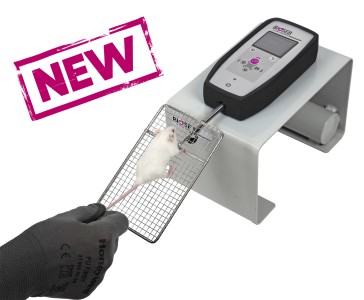Authors
S Boutary, M Caillaud, M El Madani et al
Lab
U1195 Diseases and Hormones of the Nervous System, Inserm and University Paris-Saclay, 94276, Le Kremlin-Bicêtre, France
Journal
Communications Biology
Abstract
Charcot-Marie-Tooth disease type 1 A (CMT1A) lacks an effective treatment. We provide a therapy for CMT1A, based on siRNA conjugated to squalene nanoparticles (siRNA PMP22-SQ NPs). Their administration resulted in normalization of Pmp22 protein levels, restored locomotor activity and electrophysiological parameters in two transgenic CMT1A mouse models with different severity of the disease. Pathological studies demonstrated the regeneration of myelinated axons and myelin compaction, one major step in restoring function of myelin sheaths. The normalization of sciatic nerve Krox20, Sox10 and neurofilament levels reflected the regeneration of both myelin and axons. Importantly, the positive effects of siRNA PMP22-SQ NPs lasted for three weeks, and their renewed administration resulted in full functional recovery. Beyond CMT1A, our findings can be considered as a potent therapeutic strategy for inherited peripheral neuropathies. They provide the proof of concept for a new precision medicine based on the normalization of disease gene expression by siRNA
BIOSEB Instruments Used
Grip strength test (BIO-GS3)
Source :

 Pain - Thermal Allodynia / Hyperalgesia
Pain - Thermal Allodynia / Hyperalgesia Pain - Spontaneous Pain - Postural Deficit
Pain - Spontaneous Pain - Postural Deficit Pain - Mechanical Allodynia / Hyperalgesia
Pain - Mechanical Allodynia / Hyperalgesia Learning/Memory - Attention - Addiction
Learning/Memory - Attention - Addiction Physiology & Respiratory Research
Physiology & Respiratory Research











![Dynamic Weight Bearing 2.0 – Postural Module [Add-on]](https://bioseb.com/733-home_default/dynamic-weight-bearing-20-add-on-postural-module.jpg)
























 Pain
Pain Central Nervous System (CNS)
Central Nervous System (CNS) Neurodegeneration
Neurodegeneration Sensory system
Sensory system Motor control
Motor control Mood Disorders
Mood Disorders Other disorders
Other disorders Muscular system
Muscular system Joints
Joints Metabolism
Metabolism Cross-disciplinary subjects
Cross-disciplinary subjects CONFERENCES & MEETINGS
CONFERENCES & MEETINGS 